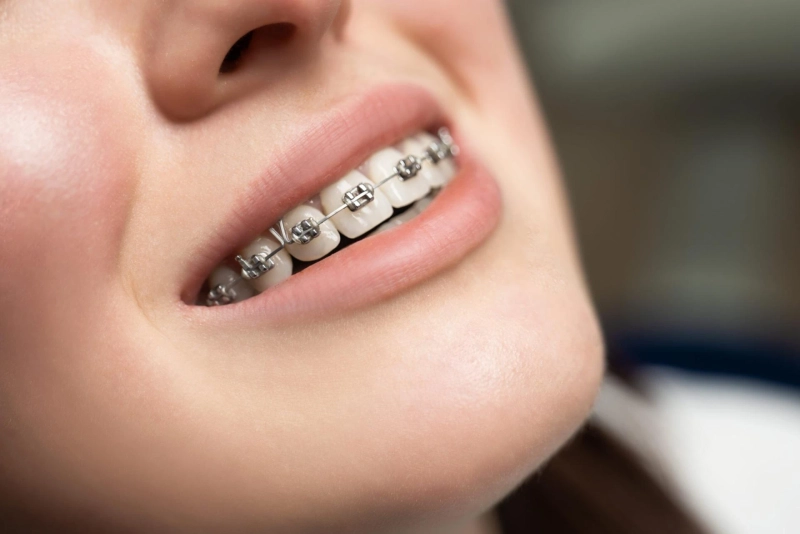Getting braces is a big step toward a healthier, more beautiful smile—but it's no secret that the process can be a bit uncomfortable in the beginning. Many people wonder how long it takes for braces to stop hurting once they’ve been applied or adjusted. If you're considering getting dental braces in Islamabad, understanding the timeline for pain and discomfort can help you prepare for the journey ahead. This guide will walk you through what to expect in the first few hours, how long the pain typically lasts, and how to manage it effectively.
Why Do Braces Hurt?
Braces work by applying constant, gentle pressure to shift your teeth into their ideal positions over time. This movement affects not only your teeth but also the surrounding bone and gum tissue. The discomfort usually stems from the initial movement of the teeth and the pressure being applied, especially after new wires or adjustments are made. The mouth also takes time to adjust to the brackets and wires, which can rub against the cheeks and lips in the beginning.
The First Few Hours After Getting Braces
Pain from braces usually starts within a few hours after the brackets are placed or adjusted. It’s common to feel soreness, sensitivity, or pressure about four to six hours after leaving the dental clinic. This discomfort may intensify over the next 24 hours as the teeth begin to shift and the mouth adjusts to the new hardware. During this period, you may also experience headaches or difficulty eating certain foods.
How Long Does the Pain Last?
Generally, the pain from braces subsides significantly within three to five days. However, the most intense discomfort is typically felt during the first 24 to 48 hours. After this initial adjustment period, most people report a noticeable reduction in soreness. For some, minor discomfort can linger for up to a week, especially if they are more sensitive or if their treatment involved complex movements of the teeth. The good news is that as your mouth adjusts, future adjustments or tightening sessions tend to cause less discomfort over time.
Managing Braces Discomfort
There are several ways to alleviate the pain caused by braces. Over-the-counter pain relievers such as ibuprofen or acetaminophen can help manage inflammation and reduce discomfort. Orthodontic wax is another effective solution—it can be applied to any brackets or wires that irritate the inside of your mouth, offering immediate relief. Eating soft foods like mashed potatoes, smoothies, and soups can also make a huge difference during the first few days. Additionally, using cold compresses on the outside of your jaw can help soothe soreness and reduce swelling.
When to Seek Help
While some discomfort is expected, severe or prolonged pain is not normal. If the pain lasts longer than a week, becomes unbearable, or if you notice signs of infection like swelling, pus, or a fever, it’s important to contact your orthodontist. Broken wires or loose brackets can also cause unnecessary pain and should be fixed as soon as possible.
Does the Pain Return with Each Adjustment?
Yes, but usually to a lesser extent. Each time you visit your orthodontist for adjustments, your braces are slightly tightened to continue shifting your teeth. This can cause renewed soreness, though it typically doesn’t last as long as the initial application. Most patients find that their mouths adapt more quickly after a few adjustment appointments, and the pain becomes more manageable.
Tips to Speed Up the Adjustment Process
While you can’t completely avoid the discomfort that comes with braces, there are ways to make the transition smoother. Maintaining good oral hygiene helps prevent gum inflammation, which can make soreness worse. Rinsing with warm salt water can also promote healing and ease pain. Staying hydrated and avoiding hard or sticky foods will reduce the risk of damaging your braces and causing additional discomfort. Finally, don’t skip appointments; consistent visits to your orthodontist ensure your treatment stays on track and discomfort is kept to a minimum.
Psychological Aspects of Braces Pain
Pain perception varies from person to person and can be influenced by your mental and emotional state. Stress and anxiety may heighten your awareness of discomfort, while a positive outlook can make the experience more manageable. Understanding that the pain is temporary and a normal part of your journey to a better smile can help you stay focused and motivated.
The Light at the End of the Tunnel
Though braces can be uncomfortable at first, the discomfort is a small price to pay for the long-term benefits. In most cases, the pain begins to fade within 24 to 72 hours and becomes much more manageable as your mouth adjusts. By taking the right steps to care for your braces and manage soreness, you can ease through the transition period and enjoy the progress your smile is making.
Conclusion
Understanding how long braces pain lasts and how to manage it can make your orthodontic journey far less intimidating. While the initial discomfort may feel overwhelming, it usually fades within a few days and becomes easier to handle with each adjustment. With proper care, patience, and the right dental team, you’ll find yourself smiling through the process in no time. If you're planning to start your orthodontic treatment, consider visiting Royal Cosmetic Surgery PK for expert care and support every step of the way.


